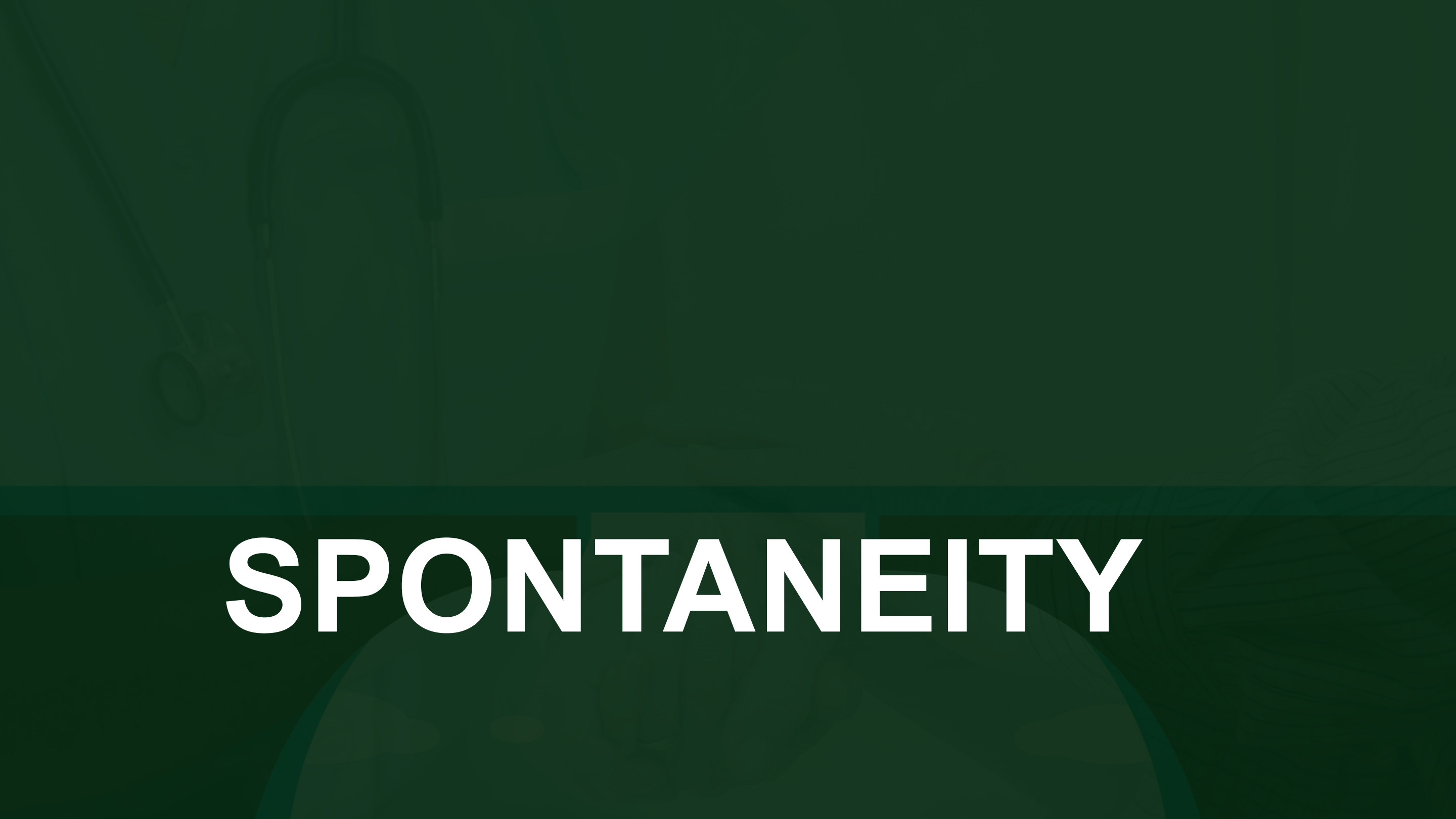Spontaneity
Spontaneity
- Roshni Kharbanda
Spontaneity, according to the Cambridge dictionary, means the quality of being natural rather than planned in advance. Spontaneity for me is to give a response which naturally comes first to our mind by being (physically, mentally and emotionally)present in the moment. It means to be the truest version of ourselves. It holds key-value in our life because it helps us to make quick rationale and contextually appropriate and considered decisions in the time of need. It is a skill which is checked in the interviews for responsible roles. For instance, in Civil Service interviews like IAS, it is done to assess the person's ability to make quality decision when under pressure and when the time plays a sensitive role. Like civil servants, we (healthcare professionals) are also working under stressful conditions. We are under pressure with severe time constraints. Spontaneity may also help us to work with full efficacy in the limited time at hand. It has the potential to build humane connections with patients along with managing time effectively.
“But Versus And” (1) is a practical and very insightful activity which we can practice in our daily life to improve as a clinician.This is how it works— take note of how many times you start your sentences with "But"when you are in a conversation with the other. By saying "But" in our conversations we bring a negative approach with the intention to contradict or reject the other person’s ideas, views or opinions. Here we don't want to add up to what the other person is saying. We are neither empathizing nor establishing a connection. By using “But” we send an impression that we don’t care.
Talking about the right thing without context does not help.
For a better understanding, we must be present. We can be present in the moment by a simple approach, that is by starting our sentences with “And.” Here we are considering what they are speaking, and we are not contradicting their thoughts. Rather we are adding on to what they think. We are trying to walk alongside them. Here the patient feels safe and speak what they actually feel. So, it becomes easier for us to reach to a more fruitful and effective outcome.
Don't just hear to speak but listen to understand.
Simple habit change can make us aware. When we are aware and present, then the patient feels more connected. This helps us to ask the right questions which leads to an effective diagnosis.
During history taking, we are often preoccupied with our own thoughts and Questions. By being present with the preoccupied content we tend to overlook what the patient wants to convey. We tend to miss out on the important details. This makes the process ineffective and the patient feels unheard. Since attending the Fundamentals of Clinical Communication Skills course organised by Glocal Academy, I learnt that rather than thinking about what to ask next, we should listen to what the patient is speaking. I have learnt that by being spontaneous in our acts we focus on what the patient is sharing and use that information to formulate our next question. We don't have to think about the list of questions, rather we should be present in the moment and guide our next sentence from the prior dialogues with the patient. By being present in the moment we allow ourselves to naturally flow through the conversation.
So, How can we practice spontaneity?
Here are a couple of easy to practice and apply strategies— Be Present and Be Curious.
Be Present
Listen to the patient with care and patience. Don't be in a hurry rather keep yourself aware of the situation by being mindful. Don't be preoccupied with other things running in your mind. Try to focus on the situation in hand. Practice the art of not getting distracted by the passing thoughts. Whenever you feel distracted, pause and consciously bring your attention to the activity.
Be Curious
Being curious helps us to find out more, by asking the right questions.Curiosity enables us to be present with an open mind, be hungry to learn more. It gives us lot of energy. Ask questions like—what I can learn from this, what they want to convey, what am I going to find out here. Being curious is one of the staple devices of medical consultation. Curiosity will make you hungry for information, hungry to know more about the patient's condition,
Let us Sprinkle the salt of spontaneity in our practice. It will help us establish humane connections with patients. Establishing humane connections with patients will build trust between us and the patients.
Reference:
Koppett. K. Training to Imagine; 2nd Edition; p 141.
Author:
ROSHNI KHARBANDA
Intern
College Name: ITS Dental College Greater Noida


Reviews
Comments